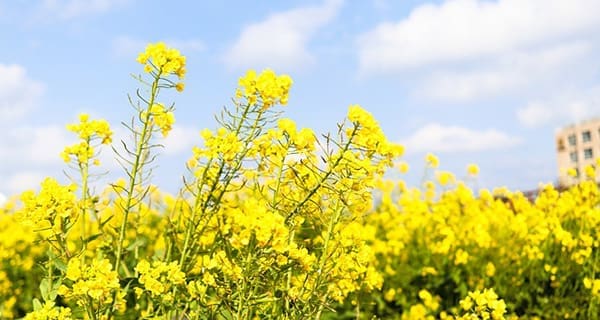 A very Canadian crop is at the heart of a crucial trade dispute.
A very Canadian crop is at the heart of a crucial trade dispute.
Although most thought Canada’s relations with China would get easier with a new regime in Ottawa, things are becoming complicated again.
Some Canadian farmers are edgy and for good reasons. China is threatening to buy canola elsewhere if Canada is unwilling to fix its fungus issue with the crop. China intends to apply new inspection standards on Sept. 1 that may block Canadian exporters from selling canola to Chinese importers.
The stakes are significant for the largest exporter of canola in the world. Over 40 percent of our canola exports – about $2 billion – are bought by China every year. Canada relies on China to buy the crop that is considered by many to be our nation’s greatest agricultural story.
Plant breeders in Manitoba created canola more than 40 years ago. For consumers, it represents one of Canada’s greatest contributions to world agriculture since it produces the world’s healthiest vegetable oil. It is also quite affordable. In addition, canola is ideal for animal feed due to its high protein content.
| RELATED CONTENT |
| New canola-killing clubroot strains found in Western Canada By Bev Betkowski |
| $1.25-million project tackles clubroot resistance in canola By Bev Betkowski |
| Research project explores new way to boost canola production By Bev Betkowski |
With well over 43,000 producers involved, canola is Canada’s oil for global food systems. Science, capital markets, intellectual property management and economic development have combined to create a very successful industry. The canola story is so compelling that Canadian producers are trying to replicate the magic with other crops, such as lentils.
The standoff in China is about the reported high concentrations of other plants and weeds in Canadian canola. China is concerned impurities will spread blackleg disease to its crops. The concerns over blackleg aren’t new – China registered concerns and applied new standards a few year ago.
Nevertheless, China bought more than four million tons of canola from Canada last year and that represents 90 percent of its imported canola.
But this time it’s different.
China is slowly becoming a food sovereign nation, producing more hogs, chicken, grains and other products. It has imported a record amount of canola over the last decade, but this has have fallen by about five percent over the past few years.
China is using its centrally co-ordinated economy to encourage consumers to eat less meat, so there is less livestock production pressure on its agricultural system. This may result in more domestic grain production and lower imports for things like canola over the long term.
If China implements new certification standards related to blackleg, it can buy elsewhere.
Complicating matters is the fact that Canadian canola farmers could have the second largest canola crop in history this year. Canola futures are down more than 15 percent since May, since some analysts predict stockpiles before next year’s harvest that will push prices even lower.
If China reduces its Canadian imports, prices may drop even further.
On the other hand, Canada has options should China play hard to get. Canada can sell its excess canola supplies to the European Union, the Middle East and elsewhere. Whatever the outcome with China, market conditions will adjust. It’s the beauty of global trading. For many, canola is too perfect a commodity to pass up.
So it won’t be a disaster for Canada regardless of the outcome.
However, Canada should note that it is not dealing with the same Chinese customer it once was. China has a different attitude and has been incredibly successful in increasing production capacity. It is also upholding stricter standards and is becoming a better steward of the land. These changes are happening quickly, more so than many Canadians can appreciate.
So whatever solutions we come up with, we need to remember who the customer is. Being the inventor of canola doesn’t give Canada immunity, but it does bestow responsibility for making the commodity adaptable to new market conditions.
Diplomacy can go a long way, particularly in agricultural trades, since the Canadian brand is really what is at stake here. Canola has our identity written all over it.
Dr. Sylvain Charlebois is senior director of the agri-food analytics lab and a professor in food distribution and policy at Dalhousie University.
Sylvain is a Troy Media contributor. For interview requests, click here.
The opinions expressed by our columnists and contributors are theirs alone and do not inherently or expressly reflect the views of our publication.
© Troy Media
Troy Media is an editorial content provider to media outlets and its own hosted community news outlets across Canada.


